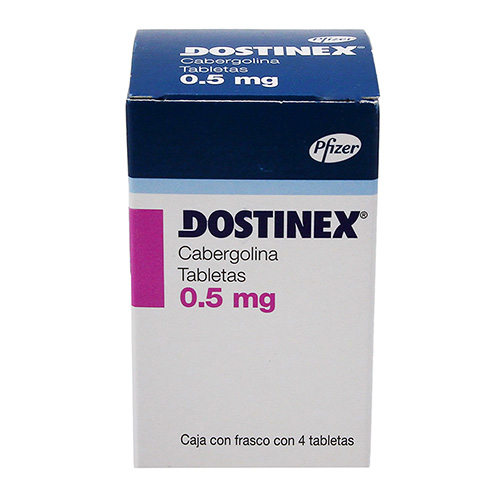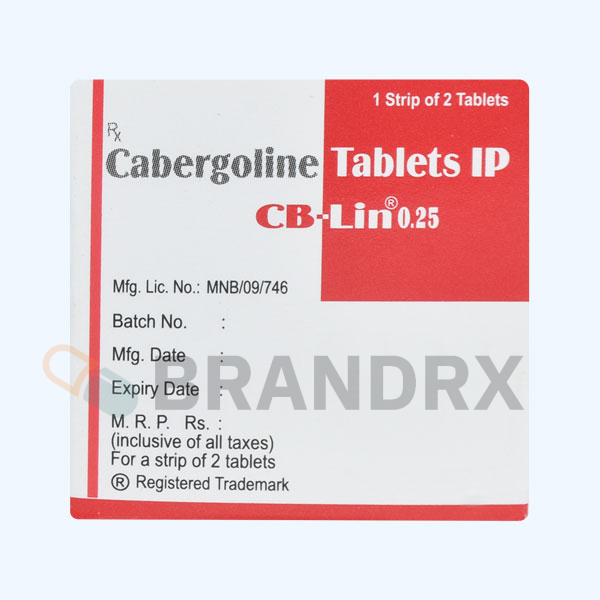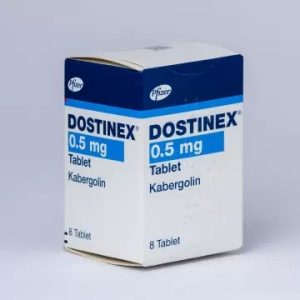Description
The active ingredient of Dostinex is cabergoline, a dopaminergic agent, a derivative of ergoline. It has a long and pronounced effect of reducing prolactin. Effects due to the blockade of prolactin secretion as a consequence of direct stimulation in the lactotrophic cells of the pituitary dopamine receptors.
PHARMACOLOGICAL PROPERTIES:
Dineraminergic derivative, which has a pronounced and prolonged prolactin-lowering effect. The drug inhibits prolactin secretion by direct stimulation of dopamine D2 receptors of pituitary pituitary cells. Furthermore, when taken at higher doses than those used to reduce prolactin secretion, cabergoline has a central dopaminergic effect due to the stimulation of D2 receptors.
The reduction in the level of prolactin in the blood plasma is observed 3 hours after ingestion and persists for 7-28 days in healthy volunteers and in patients with hyperprolactinemia and up to 14-21 days – with reception for post-breastfeeding suppression partum. Dostinex is rapidly absorbed in the digestive tract, the maximum concentration in the blood plasma is reached after 0.5-4 hours. Food intake does not affect the absorption and distribution of Cabergoline (Cabaser). The half-life, estimated from the rate of excretion in the urine, is 63-68 hours in healthy volunteers and 79-115 hours in patients with hyperprolactinaemia. Due to the long half-life, the equilibrium state is reached after 4 weeks. About 41-42% of the drug binds to blood plasma proteins.
CONTRAINDICATIONS:
Hypersensitivity to cabergoline or ergot alkaloids. Presence of data in the anamnesis of pulmonary, pericardial and retropericardial fibrotic diseases. Cardiac valvulopathies (thickening of the valve flaps, restriction of the valve, restriction of stenosis) are confirmed by echocardiography.
SIDE EFFECTS:
Dostinex is generally well tolerated. When used to prevent and suppress breastfeeding, most often there is a decrease in blood pressure, dizziness, nausea, headache, insomnia, abdominal pain (in most cases these phenomena are mild and brief). In the treatment of hyperprolactinemia, nausea, headache, lowering of blood pressure, dizziness, abdominal pain, dyspepsia, gastritis, general weakness, constipation, breast tenderness, facial flushing, depression, paraesthesia are more often noted. Usually, these symptoms are moderately or moderately expressed, appear during the first 2 weeks of admission and subsequently pass on their own. With the abolition of Dostinex, unwanted reactions disappear in a few days. The side effects of the drug are dose-dependent. In the event of the development of pronounced or uninterrupted side effects, a temporary dose reduction with a subsequent gradual increase is required (for example, 0.25 mg / week for 2 weeks).






Reviews
There are no reviews yet.